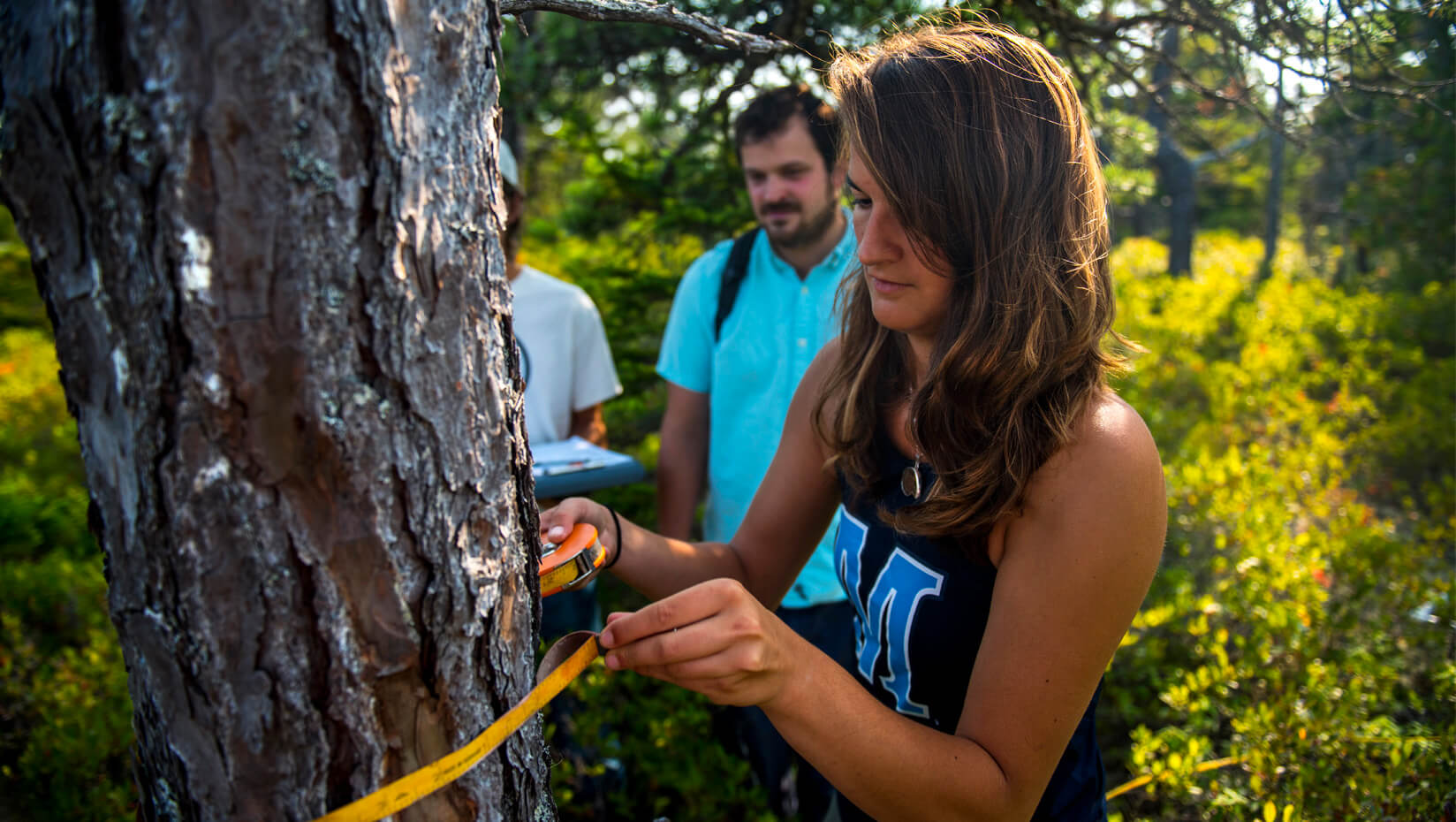
Undergraduate students spend summer at Schoodic in interdisciplinary ecosystems research
Transcript
Aaron Strong:
The key motivator for this study is to try to understand what the effects of new recreational development are in coastal Maine. We know that tourism is important for coastal Maine. We have an excellent case study here.
There’s been a new campground put in on the Schoodic Point section of the Acadia National Park. We set out to ask the question, “What has been the impact on ecosystem services?” Those are the benefits that ecosystems give to human beings, the value of natural habitats, the value of biodiversity, carbon storage — that kind of thing — but it’s also the value of tourism.
Kate Ruskin:
We’re hoping, with the way we’ve been collecting data, to be able to assess the value of ecosystem services now versus before the campground was put in. For some ecosystem services — those are the benefits provided to humans — we would expect that there would be an increase in value because of the campground, like recreation and tourism.
This site is now more accessible to people. It’s generating more value for our tourism opportunities. By the same token, there are some other ecosystem services like carbon storage where we would expect there to be a loss of value for that service.
What we’re doing is trying to figure out where that balance is shaking out now that the campground has been put in place.
Kate Ruskin:
The faculty where the co-PIs is on this grant, but the heavy lifting has all been done by two undergraduate technicians, Joe Cicero and Aly East. They’ve spent all summer down here at Schoodic, collecting a wide range of data that would intimidate most people.
Aly East:
We’re doing some research here about park visitation. Would you be willing to fill out a quick survey about your trip here?
Man:
Sure.
Aly East:
Awesome.
Joe headed out to the birds. Most days, he would start off by doing that, and then we would rendezvous later on. Some days we were giving out surveys at a couple of different locations to visitors to gauge where they were coming from.
Some days we were doing vegetation surveys to look at biodiversity. We started interviewing local stakeholders to get the more economic side of it as well.
Joe Cicero:
It’s the first year of the project, so there’s a lot of learning curve involved for everybody. I think we did a very good job of figuring out as we go and adapting with the project.
Aaron: We have economics. We have qualitative social science, like sociology and anthropology. We have ecology. We have forestry, all coming together in our coastal environment right here. That’s an incredible amount of work for anybody to do.
The fact that we’ve been able to give the opportunity to our students to be down here on Schoodic Point all summer and learn all those different methods and data collection methods is really unique and special.
I think it’s a testament to the fact that the University of Maine values holistic and interdisciplinary work for its students, and giving its undergraduate students research opportunities to go out there and do on-the-ground, real work that important to the state of Maine.
Aly East:
One of the big things that has come out of this summer for me has been learning that with research it takes an army to get a single result. Where we’re bringing together so much between the economics, tourism, biodiversity and birds, no one can be an expert in all of that. You have to outsource to get things done.
You need a wealth of information. You need to be able to rely on other people and surround yourself with a good team.
Joe Cicero:
This research definitely is very useful for the community up there in Schoodic, but also, it can be applied to other places where development in new campgrounds are being in place. You can really look at how things can change and how they can benefit the ecosystem and the tourism in the area.
Aaron Strong:
People, when they’re faced with, “How do we manage lands? How do we make decisions that optimize the value?,” they want to incorporate ecological values, but they know the economic values are important.
In many cases, there are win-wins. It’s not a simple job versus the environment question.
Kate Ruskin:
We’re hoping to provide information to help them to strategically develop the infrastructure to both maximize benefit for the local economy and local residents, but also make the most out of this ecosystem, while maintaining biodiversity in all the other services that ecosystems provide to humans.
